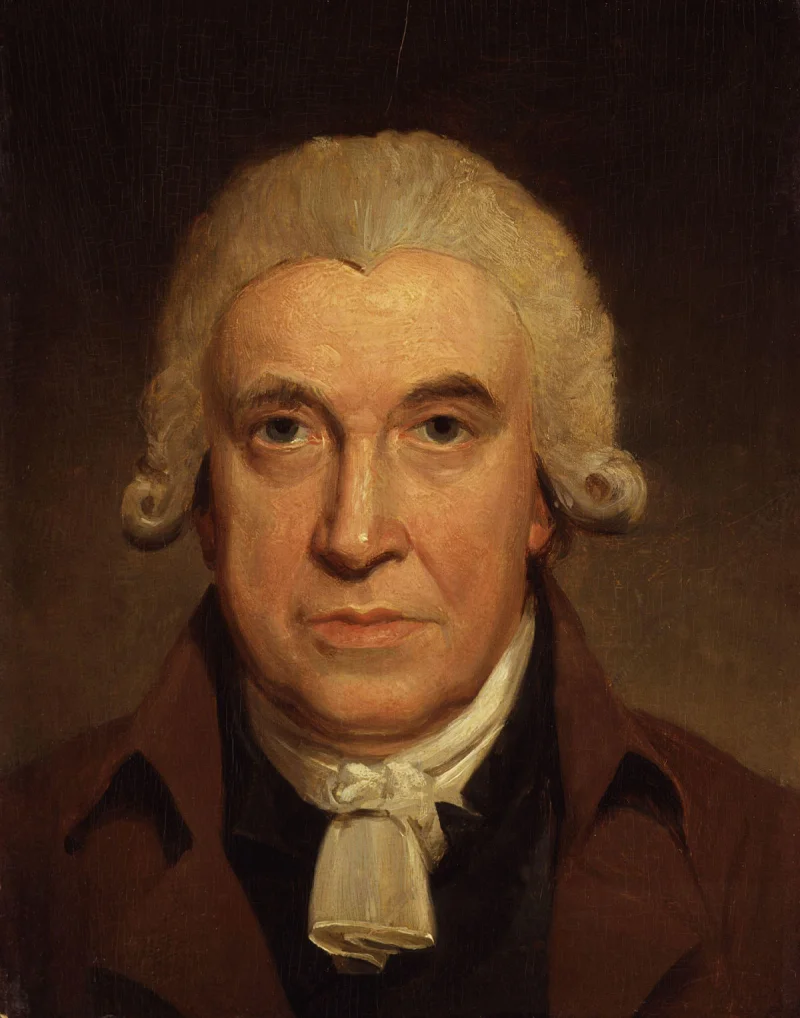Short Summary
James Watt was a pivotal figure in the Industrial Revolution, renowned for his improvements to the steam engine, which transformed it into a key driver of industrialization. His innovations significantly increased the efficiency of steam engines, which were vital for powering factories, mines, and transportation. Watt's work laid the foundation for the modern mechanical and electrical industries, making him an iconic inventor and engineer in history.
Early Life & Education
James Watt was born on January 19, 1736, in Greenock, Scotland. He was the son of a shipwright and a housewife, growing up in a family that fostered a spirit of inquiry and innovation. Watt’s early education was informal due to frequent illnesses, but he showed a keen interest in mathematics and mechanics from a young age. He later attended Greenock Grammar School and briefly studied at the University of Glasgow, where he was influenced by professors and scholars, sparking his lifelong fascination with engineering and physics.
Career Highlights
Watt’s career took a decisive turn when he began working as an instrument maker at the University of Glasgow. It was there that he encountered a Newcomen steam engine and saw the potential for improvement. In 1765, Watt developed the separate condenser, a major advancement that improved the engine’s efficiency. This innovation led to a partnership with industrialist Matthew Boulton, resulting in the formation of Boulton & Watt. Together, they manufactured steam engines that powered the burgeoning Industrial Revolution, revolutionizing manufacturing, mining, and transportation.
Major Achievements
- Improved Steam Engine: Developed the separate condenser, greatly enhancing steam engine efficiency.
- Partnership with Matthew Boulton: Co-founded Boulton & Watt, producing groundbreaking steam engines.
- Steam Engine Patent: Secured patents that protected his innovations and promoted industrial growth.
Famous Quotes
- "I can think of nothing else but this machine."
- "My whole soul is absorbed in the subject."
Interesting Facts
- Watt coined the term "horsepower" to describe engine output.
- The unit of power "watt" is named in his honor.
- He never formally apprenticed as an engineer, yet made lasting contributions to the field.
Legacy / Influence
James Watt's innovations ushered in a new era of industrial efficiency and economic growth. His improvements to the steam engine were instrumental in the development of railways, factories, and mechanized transportation, significantly contributing to the global Industrial Revolution. His legacy endures in the widespread use of steam power and his name is immortalized in the unit of power, the watt.
FAQ
Q: Why is James Watt famous?
A: He is famous for his groundbreaking improvements to the steam engine, which played a crucial role in the Industrial Revolution.
Q: What is James Watt's most significant invention?
A: His most significant invention is the separate condenser for the steam engine, which greatly improved its efficiency.
Q: Did James Watt invent the steam engine?
A: No, he did not invent the steam engine, but his enhancements made it more practical and efficient for widespread industrial use.










